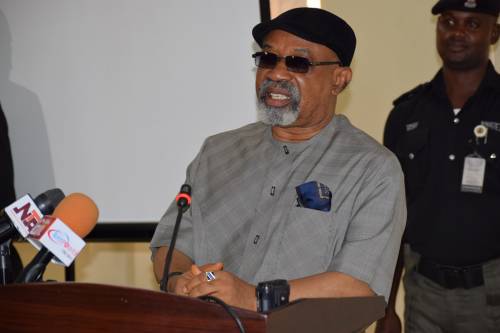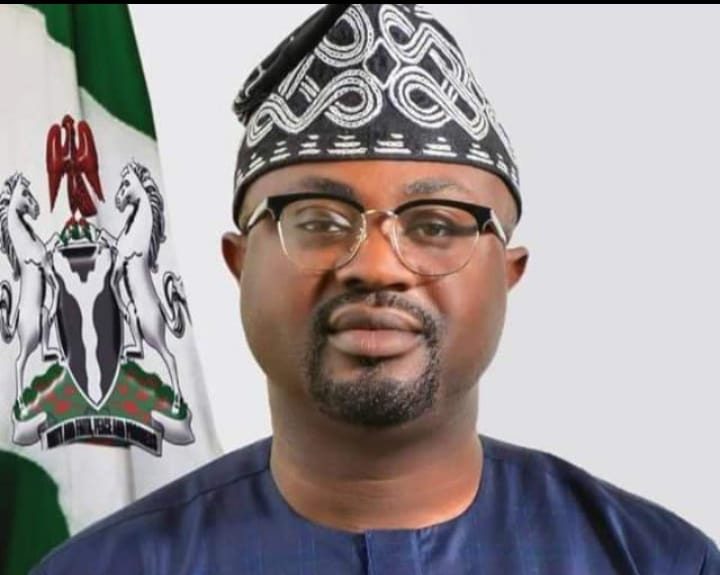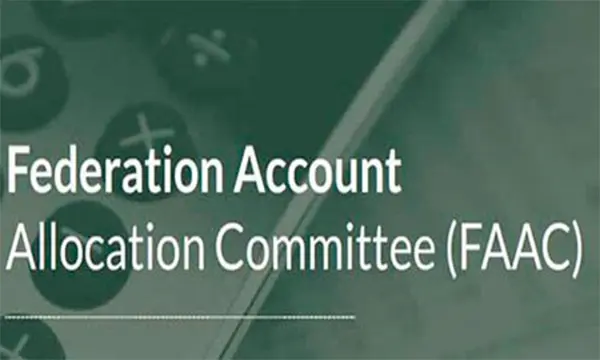Headlines
Nigerian Government vows to end casualization of workers

The Federal Government of Nigeria has expressed sadness over the alarming rate of casualisation in the nation’s workforce and vowed to put a stop to it.
The Minister of Labour and Employment, Sen. Chris Ngige said this at a one-day Public Hearing on the three labour bills by the Senate Committee of Labour and Employment on Tuesday in Abuja.
Ngige said this in a statement signed by Mr Charles Akpan, the Deputy Director, Press and Public Relations in the ministry.
The bills include the National Directorate of Employment Act 2004, Labour Act Cap L1, LFN 2004 (Amendment bill 2021(SB.469), and Prohibition of casualisation in Nigeria (Establishment Bill 2021(SB,329)
Ngige said his ministry was committed to a seamless amendment of the labour laws to bring them at par with the international best practices.
He, however, insisted that casualisation was a vexed anti-labour practice which the Federal Government had been addressing since 2016.
“Casualisation is a very volatile issue. Recall that during the Eight Senate, we appeared before this committee over the same issue, when some banks and financial institutions casualised and sacked workers unilaterally in 2016.
”We are not sitting idle. Time has come to stop casualisation of any form in the labour force. The private entrepreneurs must make gains to keep the business afloat but must not enslave their workers.
“However, it is not just about tackling casualisation; it is more about uprooting the problem. There is a yearly youth surge into the labour market.
”1.2 million graduates from the universities and polytechnics move into the market yearly to look for work in the already over-bloated public service. This is not inclusive of those with NCE and school certificates.
“Since over a year now, public servants below level 12, as part of the COVID-19 protocol have been at home, some working from home, yet the public service goes on. What does it show you? Less work for more persons.
”In spite of that, the Federal Government keeps faith and takes the burden as part of the social protection scheme of the administration that is pro-people.
”However, we must intensify efforts in job creation. That is the solution. We need a fundamental restructuring to take care of the surge,” he said.
Ngige, therefore, urged the National Assembly to grant the ministry more time to liaise within the tripartite community so as to make fruitful contributions.
”That is toward a seamless enactment of an act on the prohibition of casualisation in Nigeria, in a manner that will stand the test time,” he said.
He added that the Federal Government could no longer close its eyes to casualisation.
“We must seek a cure and an end to this. We must nevertheless ensure that any law so enacted will stand the test of time and not one that can be circumvented ab initio.
”We need a law that will elicit buy-in from the employers of labour, the workers, indeed every member of the tripartite.
“Before now, we have been working to redress casualisation in the oil and gas sector, and already set up a tripartite committee comprising the Nigeria Labour Congress (NLC) Trade Union Congress, Nigeria Employers Consultative Association (NECA), the NNPC, PENGASSAN and other-related affiliate unions.
“The assignment of the committee is to draft a guideline on contract staffing in the oil industry, which will later be transmitted to the Federal Executive Council and to the Attorney General of the Federation.
The minister, however, cautioned that with the Petroleum Industry Act (PIA) all propositions in the guidelines must be in tandem with the provisions of the Act.
“We need to modulate the guidelines to fall within the provisions of the PIA as anything that goes to the contrary is null and void,” he said.
On the bill to amend the NDE Act 2004, he admitted that it was well-intended, pointing out that the proposal to remove the minister as the Chairman of the Board of the agency was antithetical to the very nature of the NDE as a special purpose vehicle.
“The amendment is well-intended but not appropriate for the NDE as a special purpose vehicle which is inter-ministerial, tripartite and federated.
”Its board cannot be effectively chaired by an outsider who does not have enough insight and without strong influence as the minister would in control of the agency,” he added.
He further gave examples of similar agencies such as the Customs under the Ministry of Finance and chaired by the Minister of Finance as well as Immigration under the Ministry of Internal Affair also chaired by the Internal Affairs Minister.
He further asked for more time for the tripartite to meet over the proposed amendment.
The minister’s position was supported by NLC, TUC.
The Senate committee, however, gave the ministry and the other tripartite members two months to meet on the bills and revert to the committee. (NAN)
Headlines
Noble Ladies Champion Women’s Financial Independence at Grand Inauguration in Abuja

Women from diverse backgrounds across Nigeria and beyond gathered at the Art and Culture Auditorium, Abuja, for the inauguration and convention of the Noble Ladies Association. The event, led by the association’s Founder and “visionary and polished Queen Mother,” Mrs. Margaret Chigozie Mkpuma, was a colourful display of feminine elegance, empowerment, and ambition.
The highly anticipated gathering, attended by over 700 members and counting, reflected the association’s mission to help women realise their potential while shifting mindsets away from dependency and over-glamorization of the ‘white collar job.’ According to the group, progress can be better achieved through innovation and creativity. “When a woman is able to earn and blossom on her own she has no reason to look at herself as a second fiddle,” the association stated.
One of the association’s standout initiatives is its women-only investment platform, which currently offers a minimum entry of ₦100,000 with a return of ₦130,000 over 30 days—an interest rate of 30 percent. Some members invest as much as ₦1 million, enjoying the same return rate. Mrs. Mkpuma explained that the scheme focuses on women because “women bear the greater brunt of poverty” and the platform seeks “to offer equity in the absence of economic equality.”
Education is also central to the Noble Ladies’ mission, regardless of age. Their mantra, “start again from where you stopped,” encourages women to return to school or upgrade their skills at any stage in life. The association believes that financial stability is vital in protecting women from cultural practices that dispossess widows of their late husbands’ assets, while also enabling them to raise morally and socially grounded families.
Founded on the vision of enhancing women’s skills and achieving financial stability, the association rests on a value system that discourages pity and promotes purpose. “You have a purpose and you build on that purpose to achieve great potentials and emancipation,” Mrs. Mkpuma said.
A criminologist by training and entrepreneur by practice, she cautions against idleness while waiting for formal employment. “There are billions in the informal and non-formal sectors waiting to be made,” she said, rejecting the “new normal of begging” and urging people to “be more introspective to find their purpose in life and hold on to it.”
Mrs. Mkpuma’s management style keeps members actively engaged, focusing on vocational skills and training to prepare them for competitive markets. She is exploring “innovative integration of uncommon technologies” and is already in talks with international franchises to invest in Nigeria, with Noble Ladies as first beneficiaries.
The association’s core values include mutual respect, innovation, forward-thinking, equal opportunity, and financial emancipation. With plans underway to establish a secretariat in the heart of Abuja, the group aims to expand its impact.
The event drew high-profile guests, including former Inspector General of Police, Mike Okiro, and a host of VIPs, marking a significant milestone in the association’s drive for women’s empowerment.
Headlines
NEPZA, FCT agree to create world-class FTZ environment

The Nigeria Export Processing Zones Authority (NEPZA) has stepped in to resolve the dispute between the Federal Capital Territory Administration and the Abuja Technology Village (ATV), a licensed Free Trade Zone, over the potential revocation of the zone’s land title.
Dr. Olufemi Ogunyemi, the Managing Director of NEPZA, urged ATV operators and investors to withdraw the lawsuit filed against the FCT administration immediately to facilitate a roundtable negotiation.
Dr. Ogunyemi delivered the charge during a courtesy visit to the Minister of the Federal Capital Territory, Barrister Nyesom Wike, on Thursday in Abuja.
You will recall that the ATV operators responded to the revocation notice issued by the FCT administration with a lawsuit.
Dr. Ogunyemi stated that the continued support for the growth of the Free Trade Zones Scheme would benefit the nation’s economy and the FCT’s development, emphasizing that the FCT administration recognized the scheme’s potential to accelerate industrialisation.
Dr. Ogunyemi, also the Chief Executive Officer of NEPZA, expressed his delight at the steps taken by the FCT minister to expand the economic frontier of the FCT through the proposed Abuja City Walk (ACW) project.
Dr. Ogunyemi further explained that the Authority was preparing to assess all the 63 licensed Free Trade Zones across the country with the view to vetting their functionality and contributions to the nation’s Foreign Direct Investment and export drives.
“I have come to discuss with His Excellency, the Minister of the Federal Capital Territory on the importance of supporting the ATV to succeed while also promoting the development of the Abuja City Walk project. We must work together to achieve this for the good of our nation,” he said.
On his part, the FCT Minister reiterated his unflinching determination to work towards President Bola Ahmed Tinubu’s Renewed Hope Agenda by bringing FDI to the FCT.
“We must fulfil Mr. President’s promises regarding industrialization, trade, and investment. In this context, the FCT will collaborate with NEPZA to review the future of ATV, a zone that was sponsored and supported by the FCT administration,” Wike said.
Barrister Wike also said that efforts were underway to fast-track the industrialisation process of the territory with the construction of the Abuja City Walk.
The minister further said the Abuja City Walk project was planned to cover over 200 hectares in the Abuja Technology Village corridor along Airport Road.
According to him, the business ecosystem aimed to create a lively, mixed-use urban center with residential, commercial, retail, hospitality, medical, and institutional facilities.
He added that the ACW would turn out to be a high-definition and world-class project that would give this administration’s Renewed Hope Agenda true meaning in the North-Central Region of the country.
Barrister Wike also indicated his continued pursuit of land and property owners who failed to fulfil their obligations to the FCT in his determination to develop the territory.
Headlines
Benue IDPs block highway, demand return to ancestral homes

Vehicular movement along the Yelwata axis of the Benue–Nasarawa highway was brought to a standstill on Wednesday as Internally Displaced Persons, IDPs, staged a protest, demanding immediate return to their ancestral homes.
The protesters, believed to be victims of persistent attacks by suspected herdsmen, blocked both lanes of the busy highway for several hours, chanting “We want to go back home”.
The protest caused disruption, leaving hundreds of motorists and passengers stranded.
Eyewitnesses said the displaced persons, many of whom have spent years in overcrowded IDP camps, are expressing deep frustration over the government’s delay in restoring security to their communities.
“We have suffered enough. We want to return to our homes and farms,” one of the protesters told reporters at the scene.
Security personnel were reportedly deployed to monitor the situation and prevent any escalation, though tensions remained high as of press time.
Efforts to reach the Benue State Emergency Management Agency, SEMA, and other relevant authorities for comment were unsuccessful.
-

 Headlines4 years ago
Headlines4 years agoFacebook, Instagram Temporarily Allow Posts on Ukraine War Calling for Violence Against Invading Russians or Putin’s Death
-

 Headlines4 years ago
Headlines4 years agoNigeria, Other West African Countries Facing Worst Food Crisis in 10 Years, Aid Groups Say
-

 Foreign4 years ago
Foreign4 years agoNew York Consulate installs machines for 10-year passport
-

 News1 year ago
News1 year agoZero Trust Architecture in a Remote World: Securing the New Normal
-

 Entertainment3 years ago
Entertainment3 years agoPhyna emerges winner of Big Brother Naija Season 7
-

 Headlines1 year ago
Headlines1 year agoNigeria Customs modernisation project to check extortion of traders
-

 Entertainment2 years ago
Entertainment2 years agoMovie download platform, Netnaija, announces closure
-

 Economy2 years ago
Economy2 years agoWe generated N30.2 bn revenue in three months – Kano NCS Comptroller














